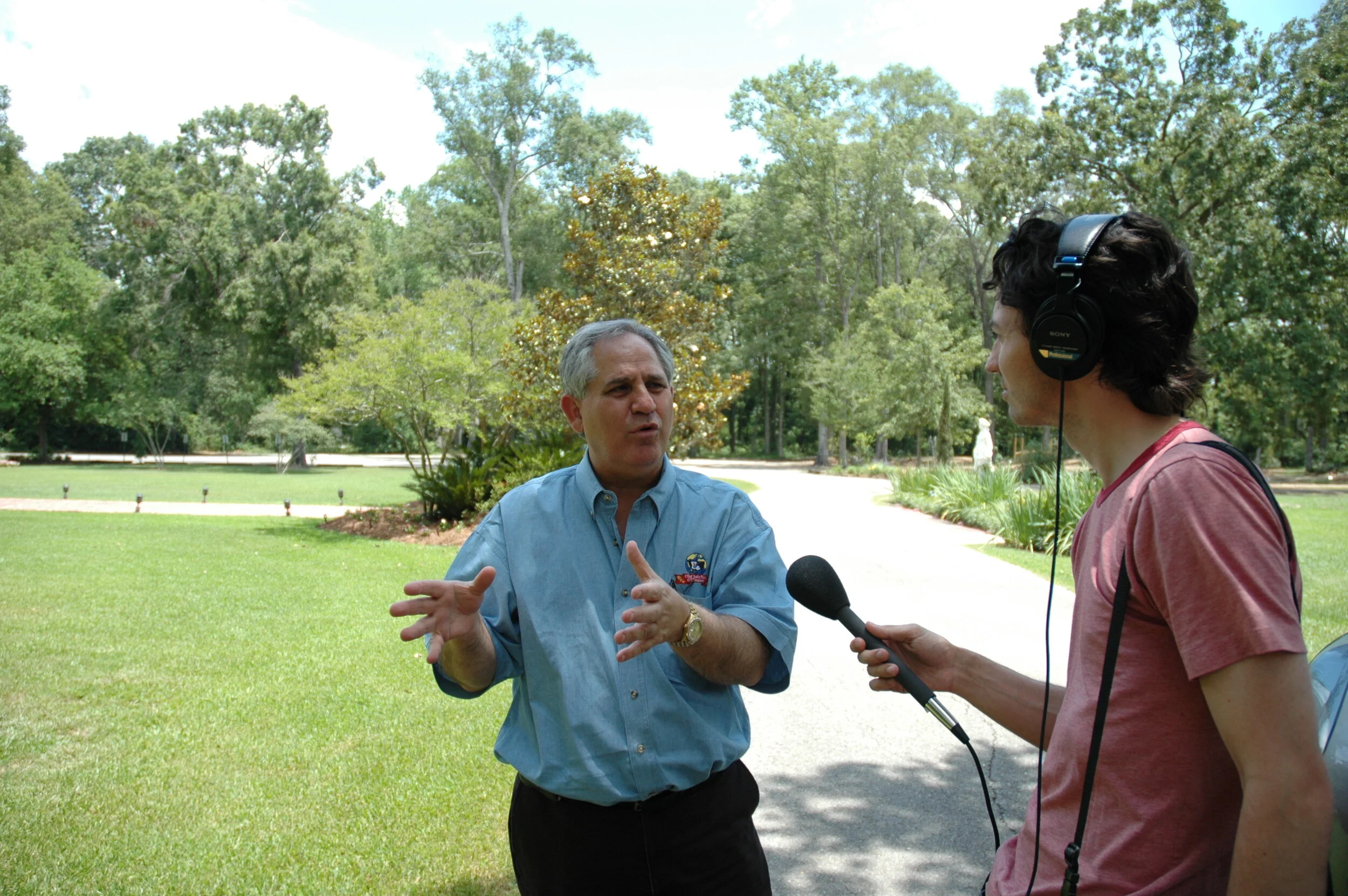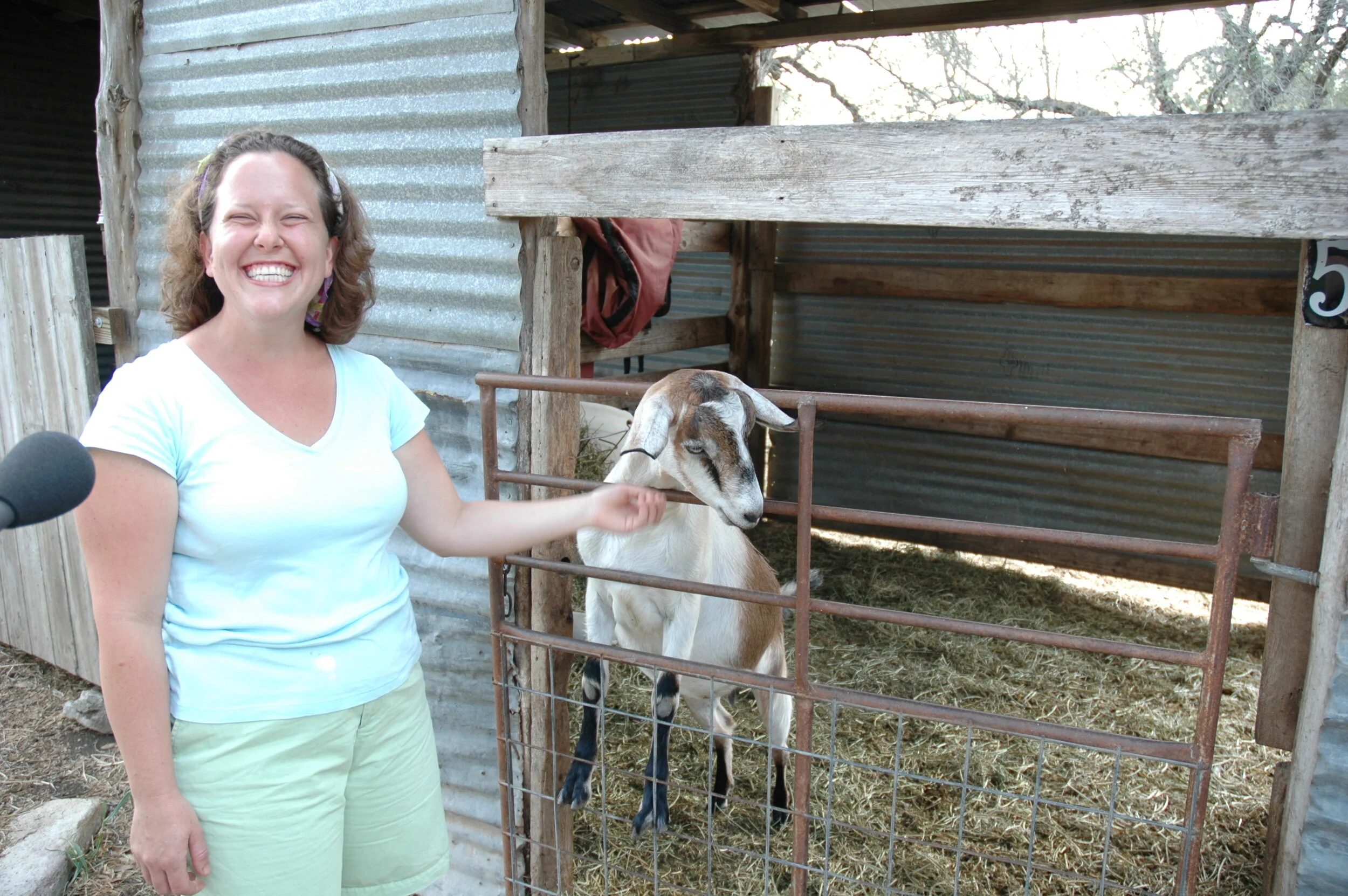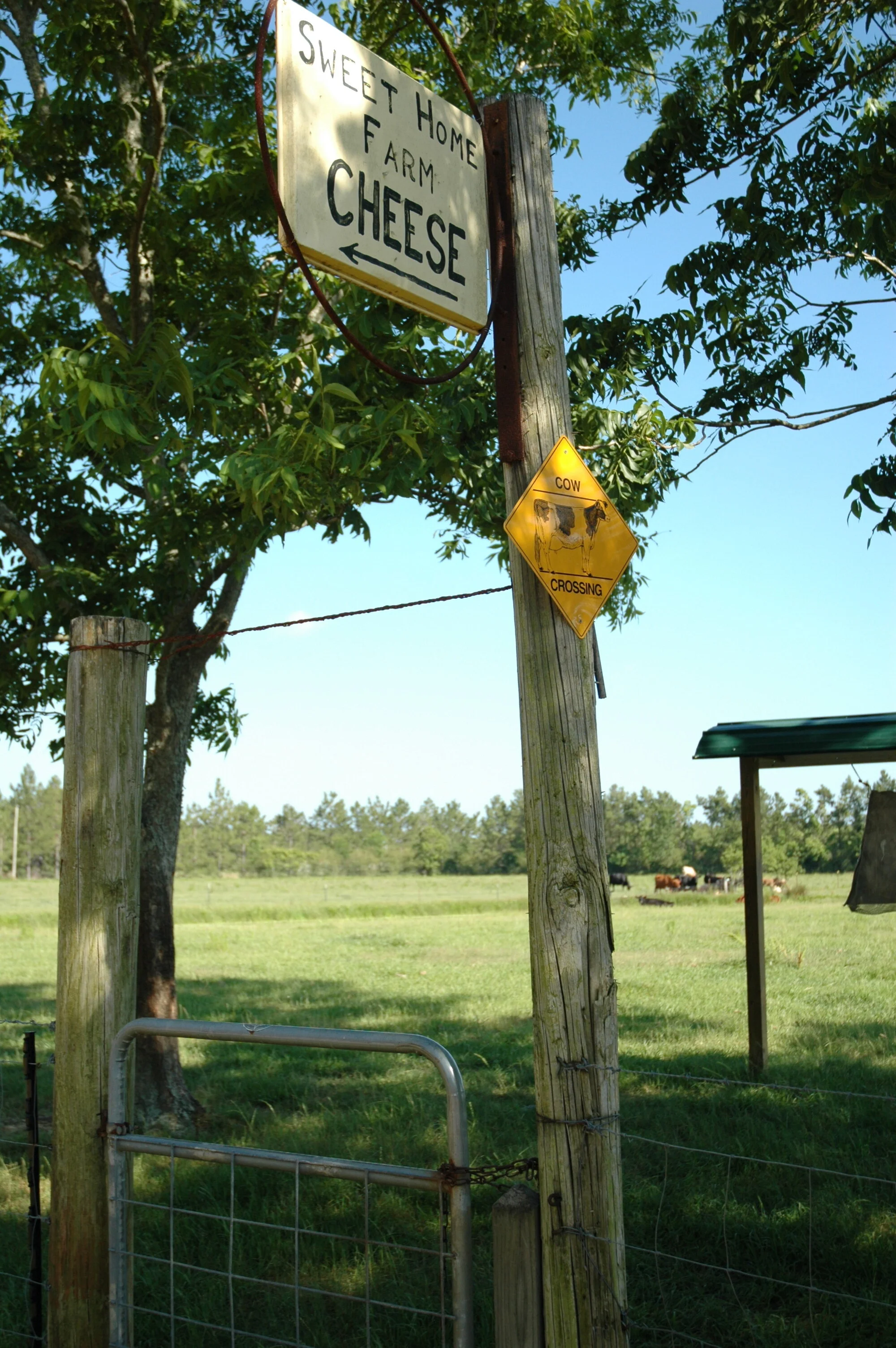Bittersweet Plantation Dairy: Louisiana
June 2006
Name: Bittersweet Plantation Dairy [Update: The dairy closed in 2013]
Owner: Chef John Folse
Location: Gonzales, Louisiana
Animals: Bittersweet gets their cow milk from a milk processor and their goat milk comes from a small dairy a few hours away. This will change when they make the dairy expansion- they will be able to collect cow milk from local dairy farms.
Cheeses/Products: Fleur de Lis, Fleur de Teche, Evangeline, Gabriel, Creole Cream Cheese, Bulgarian Style Kashkaval and Goat Milk Feta, Marinated Goat Milk Feta, Boulettes de Chevre, Feliciana Nevat, Chocolate Pecan Butter, various flavors of both ice cream and gelato, and various flavors of yogurt.
Hanging out with Chef John Folse is like having a live audio tour of the cultural and culinary Cajun and Creole history. The full day we spent touring all parts of his company was like participating in an immersion program... seriously.
We stayed at Bittersweet Plantation, which is in a small town called Donaldsonville, about 40 minutes northwest of New Orleans and one time capital of Louisiana. We cheered as we crossed the Mississippi (a first for me)...little did we know that we would cross it many more times before weaving our way out of the bayou a couple days later. Teri, the manager of Bittersweet Plantation, which has been converted to a small restaurant and B &B, greeted us with wine and tea sandwiches and showed us to our room- the Bitter Suite. The plantation is an amazing source of history itself, formerly owned by the great-grandfather of John Folse’s wife, it was one of seven buildings left standing after the town was burned by Union soldiers during the Civil War. The owner of the plantation owned the general store and kept reserves of dry goods and meat on his property, making his home a perfect location for the Northern General when the troops arrived.
The following morning Matt Summers, the dairy manager, picked us up and took us to Gonzales, LA where the dairy, bakery and company headquarters are located. The chef was waiting there for us with coffee and breakfast, but first we went to see the milk get pumped into the vat by the two full-time cheesemakers from Bulgaria (they are a story in and of themselves). Matt explained to us that their workhorse product is the Creole Cream Cheese which is sold within their local market and is therefore guaranteed to be less than a few days old whenever purchased. We can confirm its popularity as we looked for it at a number of stores who were sold out.
We talked to the Chef while we ate breakfast (pastries from his bakery) about what drove him to get into the cheesemaking business. He explained that while he was doing research for his latest book, The Encyclopedia of Cajun & Creole Cuisine, he discovered information in the archives about dairy farming in the area. It struck him that where he grew up, in the Bayou, every family had one or two cows to provide milk and cream for themselves and that the cuisines of many of the nations who settled Louisiana involved cheese. He fully acknowledges that when he had this insight he really knew next to nothing about cheesemaking, so he began to call around to local universities with dairy science programs and began to ask a lot of questions. What he looked to do was to make cheeses that would be representative of cheeses that might have been made by the seven nations who created the Cajun and Creole culture. It seemed simple enough, he just needed to find someone with the right cheesemaking expertise. Much to his dismay, no one seemed to have answers about small scale, non-cheddar cheesemaking techniques.
Chef decided that he would begin with the Creole Cream Cheese, a product that had virtually disappeared from the marketplace. He found a company that had made it for years and they agreed to give him the recipe and all of the old wooden forms they had used to hoop the product. The forms went into his archives, and the recipe was put to immediate use. Now, one key element to the development of all parts of the Chef John Folse empire is something that the Chef refers to as his Mr. Magoo syndrome; good things tend to land in his lap. A young student at LSU visited his offices one day and explained that his parents, who were currently in Bulgaria, had won a lottery to immigrate to the U.S. but that they needed a company to sponsor them in order to come over. This young man had come to Bittersweet because his parents had been making cheese for the past 30 years in Europe and he had heard there was a dairy in Gonzales. Chef began working with this young man to get his parents to Louisiana and into making cheese at Bittersweet. Of course they also needed lessons in English which were provided as part of their workday. Their names are Dimcho and Petrana Dimov and they have been with the dairy for the past three years. They have been making the cheeses that Matt and Chef John Folse develop for his Cajun & Creole line and also some of their favorites from Bulgaria- Kashkaval and Feta.
We spent the morning with Matt and the Dimovs watching them begin the cheesemaking process for Creole Cream Cheese and Fleur de Lis; both cheeses are required to set overnight so we saw them pasteurize and add the cultures and rennet. Once we had interviewed Matt we left with Chef to go see the other property he owns called White Oak Plantation which was acquired only through the sheer will of the owners that John Folse be the person to buy it from them. Like he said, Mr. Magoo syndrome. This is a space they rent out for catered events, corporate meetings, etc. He also is beginning to do events for the public like having the symphony play out in the beautifully manicured gardens. As with his cheesemaking, White Oak Plantation carries over the theme of the seven nations through its seven distinct gardens involving native species from those nations which are being developed on the property.
I asked Chef what it was like to come into the cheesemaking community as a known chef with a certain level of celebrity and his answer was impressive largely because it illustrated that he is well aware of his predicament in the artisan cheese industry. He is an established and successful businessman in the food industry who is expanding into cheese at a time when it is hot and he knows that some people will want to write him off for this. Instead of backing out he is looking at expanding his operation and working to use his influence to foster sustainable growth within the local dairy community. For example when he expands his dairy, he will begin purchasing milk from local dairy farms because through his research on dairy farming in the region he has come to realize that he has the potential and the means to help that industry. When John saw that the number of dairy farms has dwindled, he began to wonder if Bittersweet could help even more dairies by becoming a milk processor. It is worth noting that Chef’s non-cheese product lines (soups, sauces, bakery) involve large quantities of milk and cream so he actually could support a sizable portion of Louisiana dairies.
Chef wanted us to see all aspects of his operation, so we proceeded to his USDA manufacturing facility where he makes soups and sauces and also develops his other product lines- butters, gelatos, etc. After the tour we returned to Bittersweet Plantation for a fantastic five course meal. We left Bittersweet Plantation with some awesome ice packs for our cooler, cheese, a loaf of their bread, and a strong desire to return and see what Chef John Folse and Co. will be able to do to help dairy farmers in Louisiana not to mention the new cheeses he will develop.







